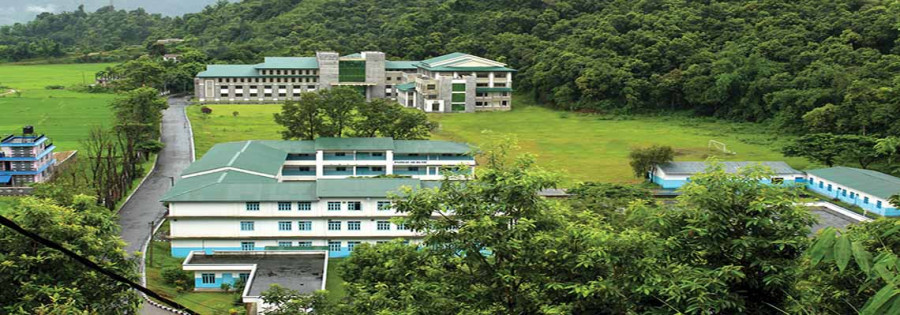National
Lawmakers’ impartiality questioned as they recommend increase in MBBS quotas for medical colleges
Despite commitment, the Speaker has failed to ensure lawmakers are not assigned in the committees where they can have a conflict of interest.
Binod Ghimire
Following complaints that medical colleges were charging MBBS students exorbitantly and under unnecessary headings, the parliamentary Committee on Education and Health in March formed a sub-committee to study the matter and probe if there were any wrongdoings on the part of the medical colleges.
But the sub-committee, which submitted its report to the House committee earlier this month, has recommended increasing the MBBS quotas for medical colleges. It has also blamed students and their parents for paying the amount as demanded by colleges instead of resisting.
It concluded that the officials at the Ministry of Education, Science and Technology, Tribhuvan University and Kathmandu University should be booked for failing to regulate them. The sub-committee has stopped short of pinning down any of the medical colleges for the wrongdoings, so no action has been recommended.
As per the fee structure fixed by the government, medical colleges in the Kathmandu Valley cannot charge more than Rs3.85 million per student, while colleges outside the valley should not charge more than Rs 4.2 million per student.
When the sub-committee called medical colleges against which complaints were filed, they had admitted to charging extra fees to their students.
Action against the medical colleges breaching the government’s ceiling of the fee and refund of additional money they charged has been one of the demands of Dr Govind KC, an orthopaedic surgeon who has staged hunger strikes several times calling for an end to malpractices in Nepal’s medical education sector. The MBBS students from different private medical colleges are on agitation demanding a refund of the additional fee they were charged. A case against Pokhara-based Gandaki Medical College on fraud charge is sub-judice in the Kaski district court.
“The panel neither has the jurisdiction nor the authority to recommend an increase in MBBS seats,” Dr Abhishek Singh, an aide to Dr KC told the Post. He said it is a clear case of conflict of interest as the lawmakers who have an investment in the private education or ‘interest’ in medical school are the members of the sub-committee that has authority to oversee the entire education and health sector.
Umesh Shrestha, who owns many schools and colleges, was a member of sub-committee. Narayan Prasad Marasini, who runs private schools, too is a member of the House committee.
Though the existing regulation of the House of Representatives bars lawmakers from being members of the committee where they have a conflict of interest, the parties are not following the law. Rule 216 of the regulation says a lawmaker should not participate in the meeting or the deliberations where they can have a conflict of interest.
However, the lawmakers, who are the owners of the ‘A’ Grade construction company are the members of the Development Committee of Parliament that is authorised to oversee the development works. Though Hari Narayan Rauniyar, of Pappu Construction, is now suspended, Jip Chhiring Lama, owner of Lama Construction is a member of the committee.
Following criticism from lawmakers from different parties, Speaker Krishna Bahadur Mahara last year had said he was concerned over the inclusion of lawmakers in the House committees where they could have a conflict of interests. He had said though the lawmakers are inducted in different committees as recommended by their respective parties, he could transfer them if needed.
However, a year after his commitment, he has not taken any measures to transfer them. The experts, who have a close understanding of the functioning of Parliament, say the respective parties have the first responsibility to ensure their lawmakers are functioning without prejudice.
“Naturally, a lawmaker cannot be fair while taking decisions about issues of his/her interest or involvement,” Mukunda Sharma, a former secretary at the parliament secretariat, told the Post. “It is, therefore, the responsibility of every party to ensure their lawmakers are given the responsibility of the committees where they don’t have interests,” said Sharma. “He said if there was a provision of penalty where conflict of interest was established it would have discouraged such practice.”




 11.12°C Kathmandu
11.12°C Kathmandu













